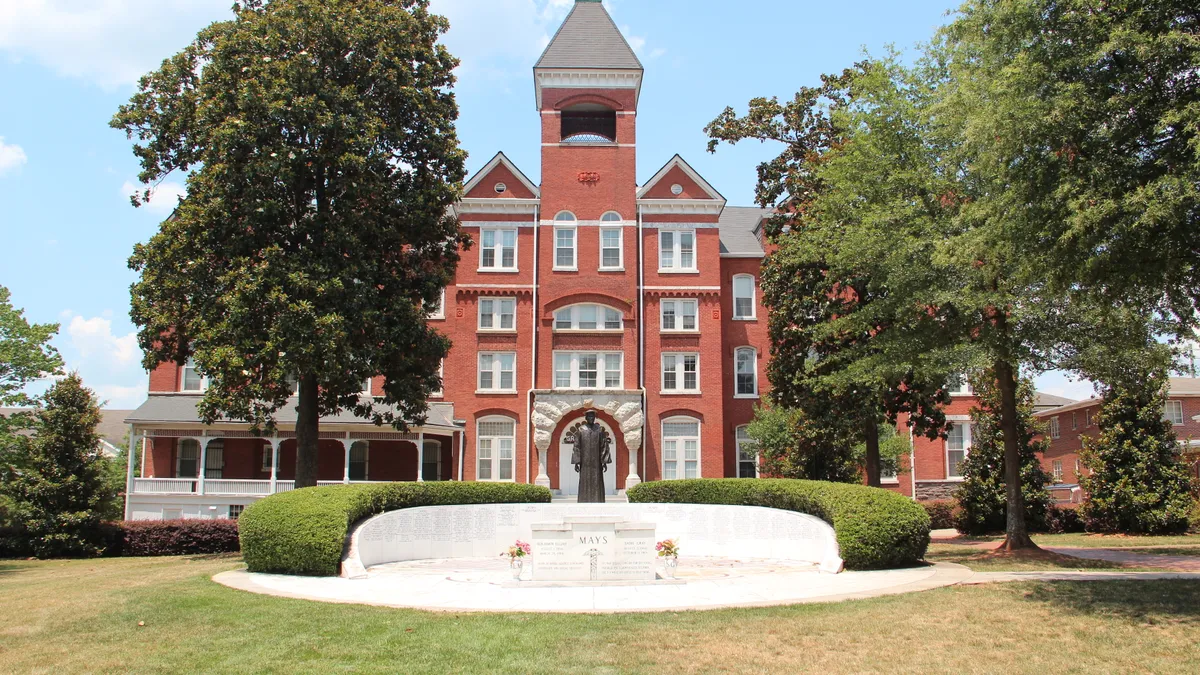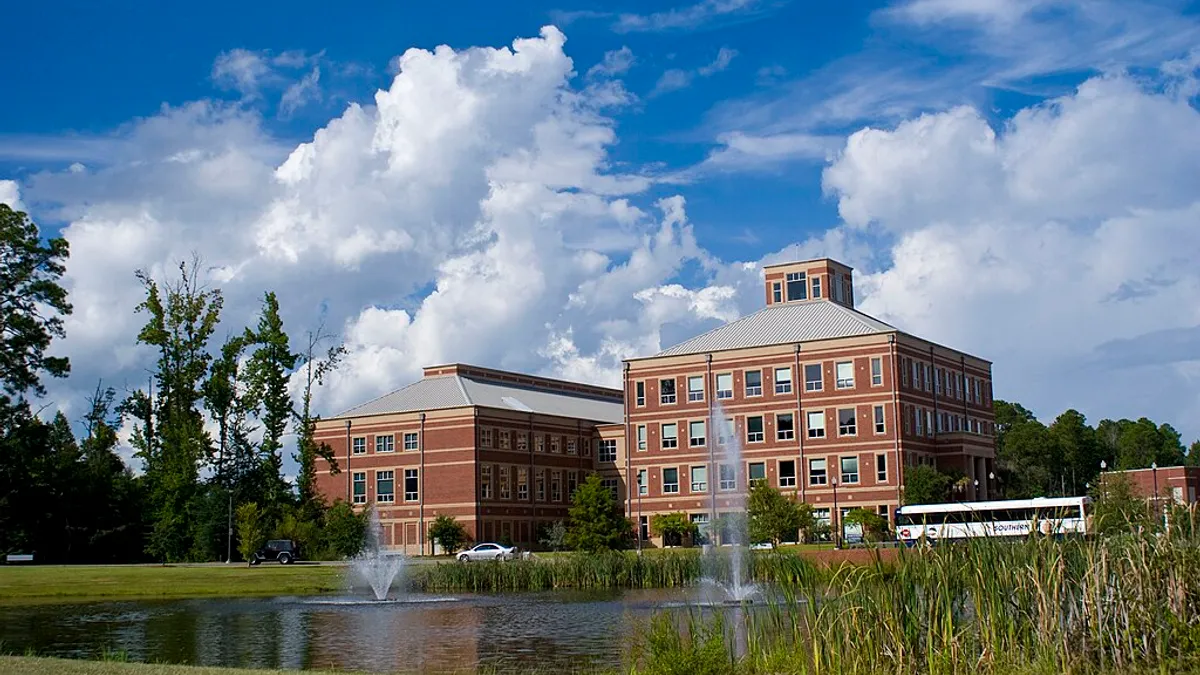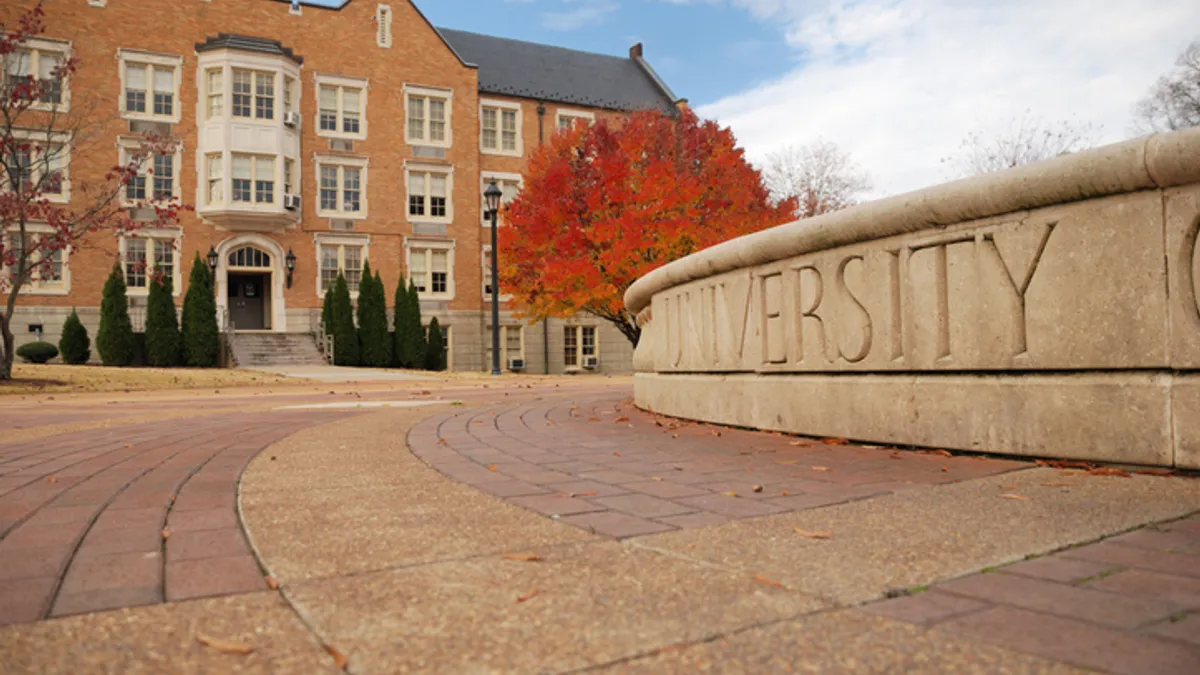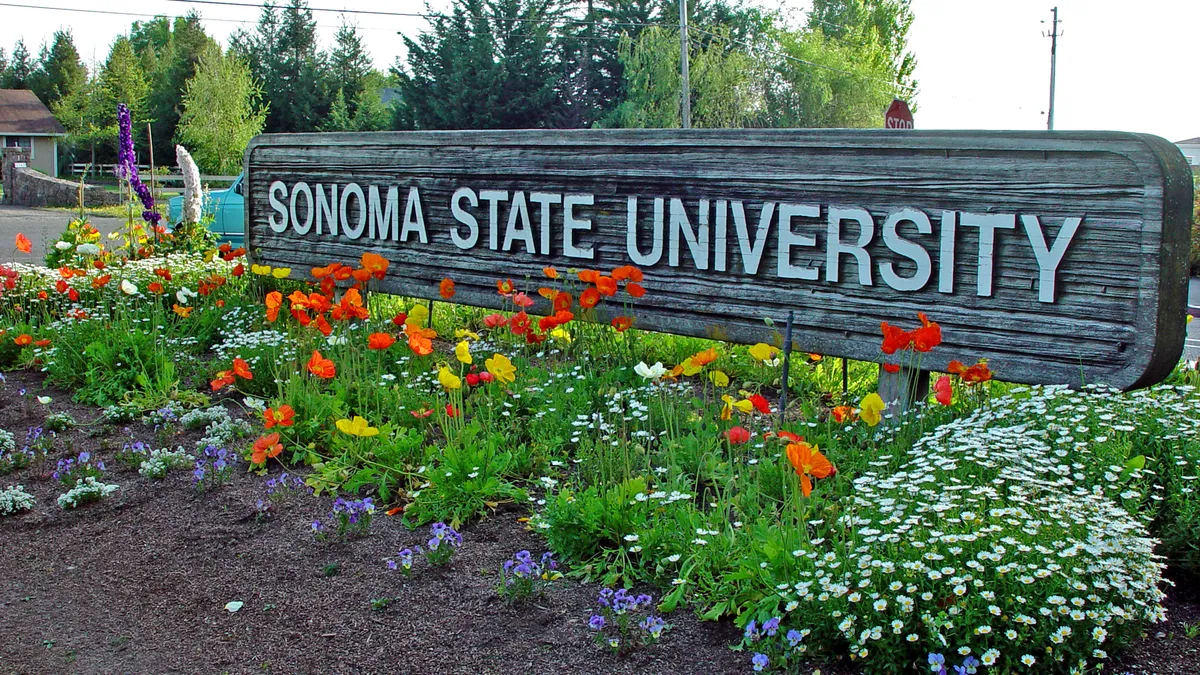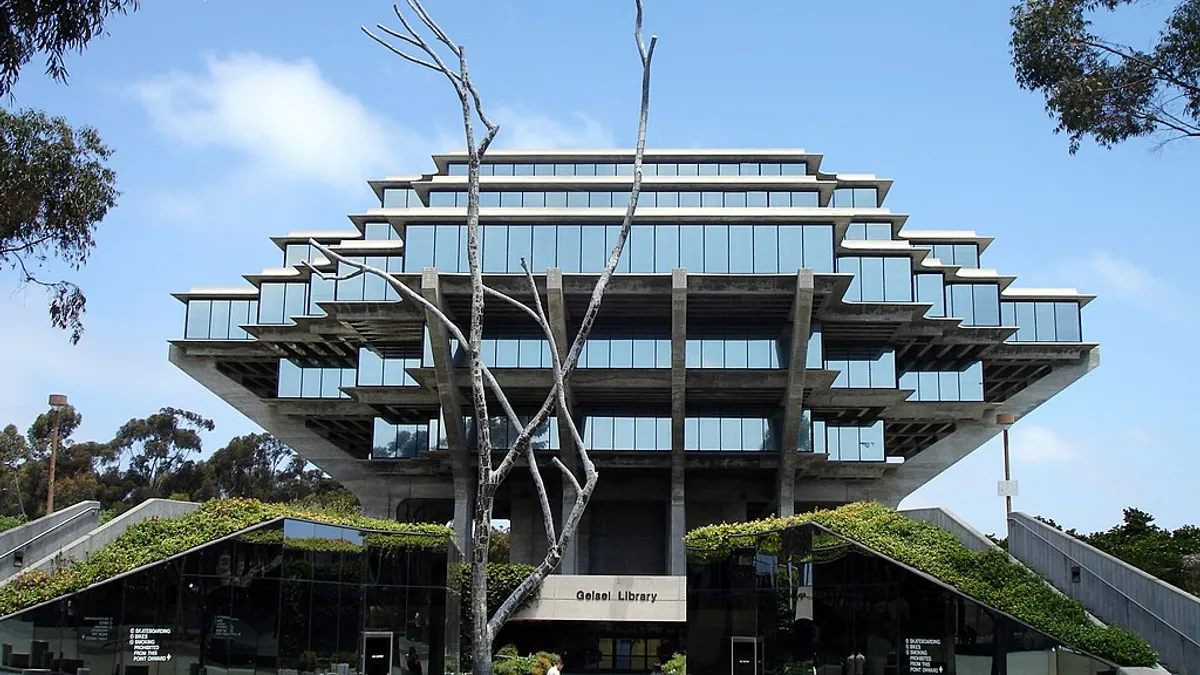This story is part of the Higher Ed Dive Outlook on 2021, a series on the trends that will shape the industry in 2021. For a look at the business trends affecting other industries, see the Dive Outlook on 2021.
Historically Black colleges saw a significant uptick in donations last year, and several of the incoming president's campaign proposals pledged them additional funding. Higher education experts say these schools are poised to build on that momentum in 2021.
More than a dozen HBCUs recently attracted the interest of billionaire philanthropist MacKenzie Scott, who donated some $500 million to the sector. President-elect Joe Biden has also pitched billions in new funding for HBCUs, as well as other higher education policies that could benefit these schools.
Yet funding challenges remain. Like much of higher ed, the coronavirus pandemic is forcing HBCUs to pay for campus safety measures and invest in online learning. The health crisis has also sapped states' coffers, and some are looking to pull support from public colleges to fill their budget holes.
Here, we look at five HBCU funding trends to watch this year.
Megadonors' interest in HBCUs grows
HBCUs don't usually receive the size of donations to which Ivy League universities and other affluent colleges are accustomed, but they've recently been attracting more interest from megadonors. Last year, HBCUs received at least 31 gifts worth $1 million or more, according to Higher Ed Dive's analysis of data from The Chronicle of Philanthropy. That's compared to just two in 2017, Inside Philanthropy found.
Spelman and Morehouse colleges, in Georgia, and UNCF, an organization that awards scholarships and lobbies on behalf of private HBCUs, received $40 million each in June from Patty Quillin and Netflix CEO Reed Hastings. The funds will be used for scholarships. A few months later, Bloomberg Philanthropies pledged $26 million to the Morehouse School of Medicine, in Georgia.
Although the medical school averages $10 million in gifts annually, it has raised four times that amount so far this fiscal year, said Bennie Harris, the school's senior vice president of institutional advancement.
The worldwide protests for racial justice last year following the police killing of George Floyd, along with how the coronavirus pandemic has disproportionately harmed some communities of color, have amplified the school's mission, Harris added.
Other higher ed experts echoed those comments. "People are wanting to give because they want to see us break some of these systems that prevent the success of many individuals," said Rob Henry, vice president of education at the Council for Advancement and Support of Education. "This is why we see this kind of giving to historically Black colleges and universities and other (minority-serving institutions)."
MacKenzie Scott could inspire others
Scott, the former wife of Amazon CEO Jeff Bezos, grabbed headlines when she gave away more than $4 billion of her fortune last year. A large chunk of those funds — around $500 million — went to HBCUs, according to a Washington Post analysis.
For several schools, the gifts were their largest yet. That includes Maryland's Morgan State University, which is putting most of the $40 million it received toward its endowment. And Virginia's Hampton University, which received $30 million, is exploring using some of the funds for scholarships.
Scott's donations are unusual beyond their size, however. In a blog post on Medium, Scott wrote that she gave the money upfront and "with full trust and no strings attached." That approach can be "transformational" for the recipients, said Harry Williams, president and CEO of the Thurgood Marshall College Fund, which lobbies on behalf of public HBCUs.
Higher education experts agree that Scott may inspire other deep-pocketed donors to buck the status quo. Most foundations and corporations restrict funds for specific purposes, Williams said. "What she did was completely outside of the box."
Small campaigns are taking off
Some HBCUs are getting more small donations as well. Morehouse School of Medicine, for instance, has raised $400,000 in smaller gifts, nearly reaching its annual target of $500,000 only halfway through the fiscal year.
Grambling State University, in Louisiana, found similar success. It raised more than $400,0000, double its goal, in a campaign late last year. Kestrel Linder, CEO of online fundraising platform GiveCampus, which Grambling State used, said the campaign was likely successful because it focused on the impact donors could make on students' academic success.
HBCUs "help level the playing field for students with diverse backgrounds, who have historically been locked out of vital opportunities," Linder said. "That's a message that people care about a lot right now."
Coronavirus relief is coming to HBCUs
The latest coronavirus relief package gives $23 billion to colleges, an amount the American Council on Education called "wholly adequate." The group has asked Congress for at least $120 billion to offset lost revenue and new expenses because of the pandemic.
Of the higher ed aid, $1.7 billion was carved out for HBCUs and other MSIs. This new funding has helped "backfill" some of the money colleges spent to quickly move online, but the need for support is ongoing, Williams said. TMCF plans to ask lawmakers for more infrastructure funding.
The relief package was passed along with another measure that eliminates $1.3 billion in debt incurred by HBCUs through a federal capital financing program. That will free up resources for colleges to spend on their priorities, said Terrell Strayhorn, director of the Center for the Study of HBCUs at Virginia Union University.
"You'll start to see HBCUs using their dollars to stand up new programs (and) to recruit more competitively for faculty," Strayhorn said.
Biden's big plans for higher ed
Biden has said he'd create large pots of new funding for HBCUs and other MSIs. Those include $10 billion to create at least 200 new centers of excellence, $20 billion for infrastructure and $10 billion for student success initiatives.
Other big campaign proposals, if they come to fruition, could also benefit HBCUs. Biden pitched a funding system for higher education akin to the Title I program, which sends additional money to K-12 schools with high shares of low-income students. HBCUs that would receive the extra funds could spend them on student support services such as advising and mental health services, Strayhorn said.
"If the Biden-Harris administration can deliver on half of what they're talking about, it would be revolutionary almost," Strayhorn said.
Biden is likely better able to follow through on some of his promises after Democrats narrowly secured control of the Senate by winning two runoff elections in Georgia earlier this month. Yet the party's slim margins in both chambers of Congress will make it difficult for him to implement some of his more progressive proposals, such as free college, experts say.
Incoming lawmakers' educational backgrounds will also likely bring more attention to HBCUs, Strayhorn said. Vice President-elect Kamala Harris — who graduated from Howard University, in Washington, D.C. — will be the first HBCU alum in the role. And one of the Georgia Senate victors, Raphael Warnock, is a Morehouse College graduate.
"Congress just gained another advocate of HBCUs," Strayhorn said.



